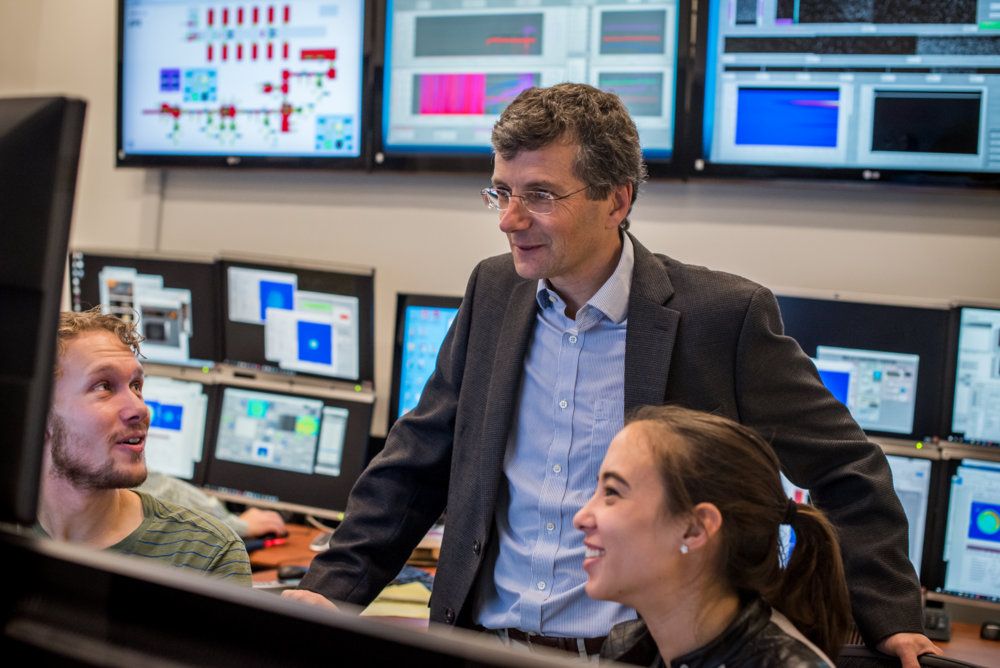Circa 2016
A set of new laser systems and proposed upgrades at the Department of Energy’s (DOE) Lawrence Berkeley National Laboratory (Berkeley Lab) will propel long-term plans for a more compact and affordable ultrahigh-energy particle collider.
Progress on these laser systems and laser-driven accelerators could also provide many spinoffs, such as a new tool to hunt for radioactive materials, and a miniaturized and highly tunable free-electron laser system enabling a range of science experiments.
These efforts are outlined in a DOE-sponsored workshop report that focuses on a set of 10-year road maps designed to kick-start R&D driving a next-generation particle collider for high-energy physics. The ultimate goal is a machine capable of exploring physics beyond the reach of CERN’s Large Hadron Collider (LHC). Today’s most powerful collider, the LHC enabled the discovery of the Higgs boson that resulted in the 2013 Nobel Prize in physics.
